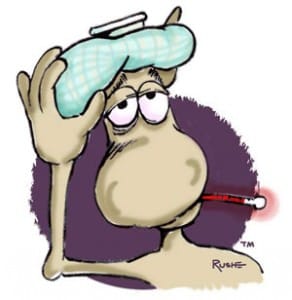
When your horse doesn’t feel well, it’s time to call!
Providing effective medicines to horses, in an effort to help treat or prevent disease, is an important part of the job of an equine veterinarian. In order to practice good medicine, the veterinarian needs to identify the problem, and provide treatments that are most likely to be effective. This is a stepwise process, which should be founded on sound, scientific principles.
To identify the problem, I will make assessments of a variety of physical findings, and compare them to what I know – from lots of study, and many years experience – to be normal. So, for example, I’ll look to see if the horse’s body temperature is elevated, or if his leg is swollen, or if he’s limping. Sometimes, additional testing may be needed to check out the extent of the problem. After looking and probing, hopefully I’ll have a pretty good idea of what’s going on, or at least if the problem that I’m looking at is serious.
Next comes how to treat the problem. Knowing about the condition, I’ll come up with a plan of action. The “best” plan of action is one that you can afford, that’s likely to work, and that the horse will allow (horses can be difficult and uncooperative patients). That plan of action is formulated by a combination of experience (how to work with the horse, how similar conditions respond) and science (what tests have shown to be most likely to be effective).
There are myriad medical conditions of the horse, and, over time, we’ll try to get to most all of them!

